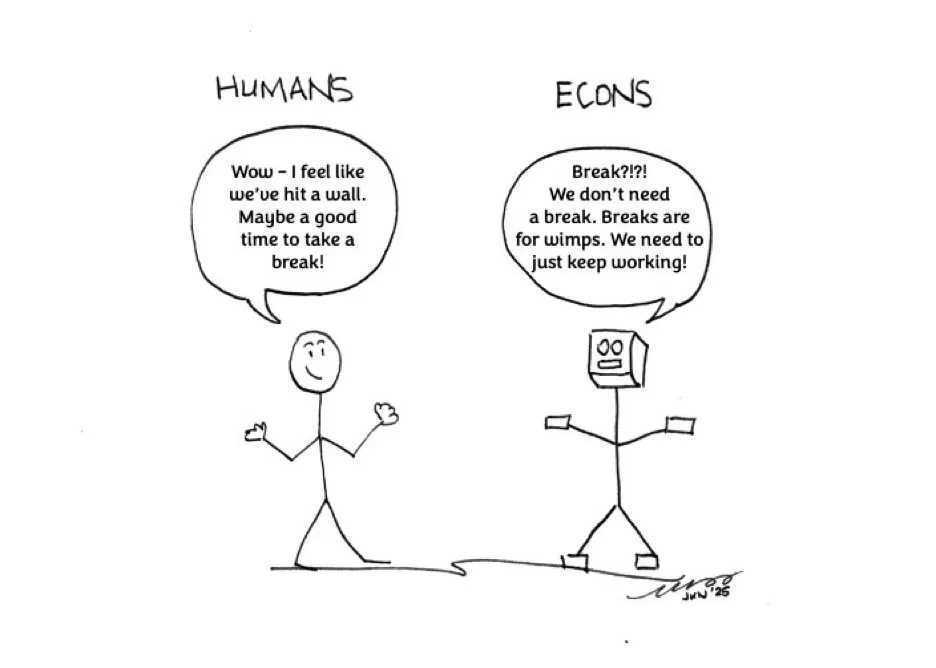When Joy Gets Optimized Away
© Martha Wooding-Young, The Resilient Executive LLC, 2025
Did you see this lovely, thought-provoking post by my friend Miranda Holder? She is discerning and deftly pointing out a common shared component of our hidden decision architecture: the endless drive for efficiency at the expense of joy. The source? Hard to say, but it seems to have deep roots in European religious culture. Max Weber called it the “Protestant work ethic,” but he had philosophical antecedents in Calvin and Puritan ethics. Some blame the Industrial Revolution, but that looks more like an outcome than a cause. What we can say as leadership coaches is that it is pervasive in our clients.
Regardless of source, the antidote is simple—albeit not easy: awareness of what’s happening in our lived experience.
That moment when you feel as though your brain is running so hot you want to stick your head in the office fridge? Good time to take a break. The bad news is that only works when you … notice that your brain is running so hot that you want to stick your head in the office fridge.
In the world of behavioral economics, Econs are the coldly rational beings of economic theory—flawless decision-makers, immune to emotion, maximizers of utility. They are somewhat useful in terms of the economic theory I studied as an undergrad at the London School of Economics, as they allow for the hypothetical isolation and measurement of individual aspects of economic behavior. But in real life, we are Humans—messy, emotional, and gloriously inconsistent, as well as curious, creative, compassionate.
Richard Thaler first introduced this distinction in “Misbehaving: The Making of Behavioral Economics,” showing how traditional economics assume away the very quirks that make us human. Daniel Kahneman’s “Thinking, Fast and Slow” deepened this with his exploration of our marvelous brains choosing between fast, intuitive reactions vs. slow, effortful reasoning based on available energy resources and the limitations of information available in any moment. Quirky indeed.
The danger? Leaders seduced by the “Econ” ideal optimize every minute, every meeting, every metric—until joy disappears. Curiosity, play, even presence become liabilities in the relentless drive for efficiency. And yet it’s precisely those human moments—serendipity, laughter, awe, rest—that spark creativity, build trust, and drive innovation.
Optimizing has its place. But over-optimization is a thief.
So the next time you're tempted to squeeze more out of your calendar or your team, or you find your head running hot or even pounding, ask: What would the human in me choose? Take a moment to stop, breathe, center, even smile. Ask yourself, What’s the next right thing? Allow space for the answer to emerge that your body might actually need a break – some movement, hydration, food, some social interaction.
If you find yourself struggling to notice until you’ve reached the end of your workday and you flop onto your couch completely depleted, that’s a good sign that you’ve lost track of your body and its trove of information and resourcefulness. Want to talk about how to tune back in and restore balance to the force? Joy even? Reach out.


